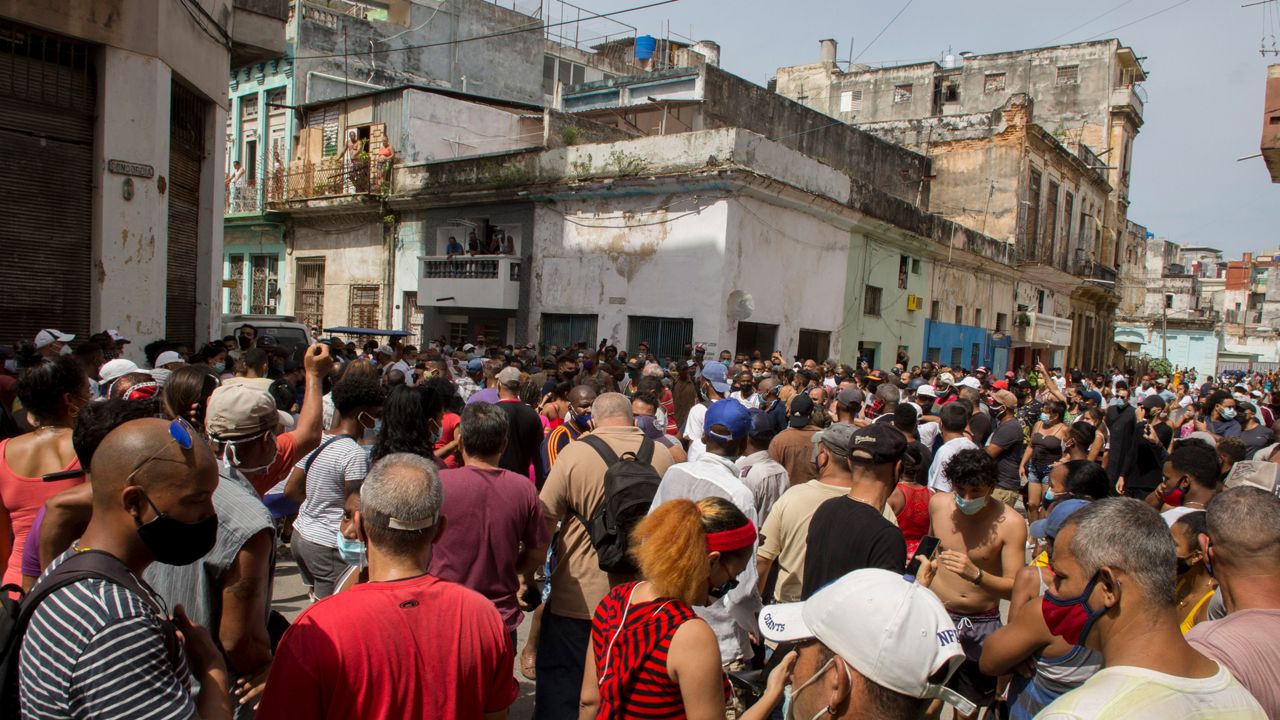Listen and Subscribe:
Apple | Spotify | Google | Stitcher
TAMPA, Fla. — It’s been 60 years since the United States placed sanctions on Cuba.
America's all-or-nothing approach toward Cuban relations has long been a complicated point with the governments of both nations, as well as the Cuban people and Cuban-Americans.
A lack of general freedoms denied the Cuban people also is punctuated with widespread shortages of food, fuel, medicine and other goods - especially pronounced during the pandemic.
The issue has returned to prominence recently with large-scale protests in the island nation, as well as across Florida.
Thousands of Cubans have marched on Havana’s Malecon promenade and elsewhere on the island to protest food shortages and high prices amid the coronavirus crisis, in one of biggest anti-government demonstrations ever.
On the latest episode of our To The Point Already podcast, Spectrum Bay News 9's Rick Elmhorst and Roy DeJesus discuss the status of the U.S. approach toward Cuba and if sanctions are still needed.
Cuban-born Tampa resident Ralph Fernandez, an anti-communist activist and Dr. Graham Sowa, an American who went to medical school in Cuba discuss the status of the sanctions, what's right about them and what needs to change.
"It's not moral that the United States of America maintains an emargo on the country of Cuba," said Dr. Sowa, who lived on the island for eight years.

A anti-government protesters march in Havana, Cuba, Sunday, July 11, 2021. Hundreds of demonstrators went out to the streets in several cities in Cuba to protest against ongoing food shortages and high prices of foodstuffs. (AP Photo/Ismael Francisco)
On Monday, President Joe Biden spoke in support of the Cuban people and promised he would have more to say later on the topic in the week.
"The government should refrain from violence or attempts to silence the voice of people," President Biden said.
So in 2021, a very different time from the early 1960s, how does America protect its security and national interest but also make life better for the people of Cuba?
"I don't think we can rely neccesarily on just the fact that there has been a failure," Fernandez said. "Because there also has been some success at holding some of the (Cuban) aggression.
"Cuba was the original terrorist state. We have to be very cautious. You can't trust anything that these tyrants say."
There was a recent glimpse into warmer relations when the sanctions were relaxed a few years ago.
In 2009, President Barack Obama eased the travel ban, allowing Cuban-Americans to travel back-and-forth freely. In 2014, the Obama administration announced its intention to re-establish relations with Cuba. Obama became the first sitting president to visit the country since 1928 when he visited for three days in March 2016.
President Donald Trump enacted new rules upon taking office which re-enforced the business and travel restrictions which were loosened by the Obama Administration.
"What has been happening for the last 60 years," Dr. Sowa said. "(The embargo) and keeping the U.S. from interacting meanifully with commerce, banking, tourism, foreign travel, trade and security with the nation of Cuba. "That has failed to produce the results it was supposed to."
ABOUT THE SHOW
Spectrum Bay News 9 Anchor Rick Elmhorst sits down with the people that represent you, the people fighting for change and the people with fascinating stories to ask the hard questions.
To The Point Already will cover people, politics and issues from a Tampa Bay perspective every Wednesday.



